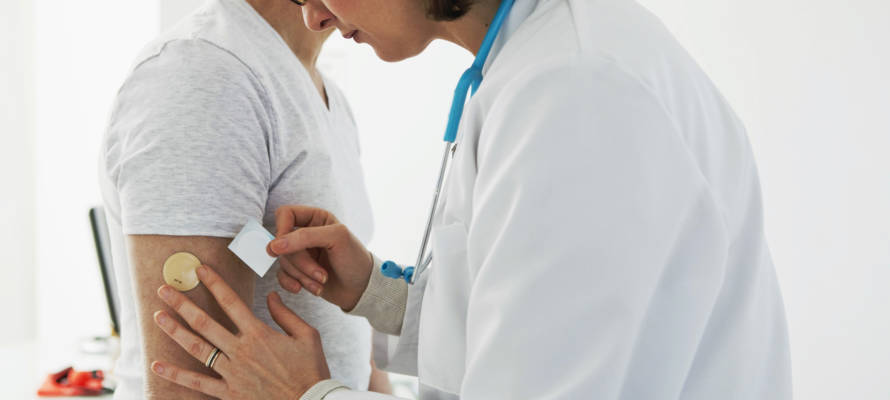Developed by G Medical in Israel, the Vital Signs Monitoring System allows medical staff to constantly monitor vital heart data for patients suffering from severe coronavirus symptoms.
By Yakir Benzion, United With Israel
The U.S. Food and Drug Administration has given authorization for a new Israeli device to be used in hospitals for patients undergoing treatment for COVID-19.
G Medical Innovations from Rechovot developed its Vital Signs Monitoring System (VSMS) electro-cardiogram patch for remote monitoring of the “QT interval” of an ECG in patients, especially those undergoing treatment in a hospital for coronavirus with drugs that can prolong that QT interval and cause serious heart malfunctions.
Patients with severe COVID-19 infections sometimes receive medicine that affects the QT interval – the time needed for the heart’s muscles to recharge between heartbeats. If the QT interval is too long it can potentially lead to fainting, seizures or sudden death.
The VSMS is a patch that attaches to the patient and sends the heart data remotely to the medical staff so that they can monitor the QT interval on a patient’s electrocardiogram. Getting the data remotely means doctors and nurses don’t have to constantly be bedside where they could be exposed to the virus.
“This authorization from the FDA is an outstanding development for G Medical and its value cannot be underestimated. It is heartening to see that our technology has been recognized as being able to help ease the burden of COVID-19 on the US healthcare system,” G Medical’s CEO Dr Yacov Geva said, adding he is confident that VSMS patch “can fill the shortage of ECG monitors that hospitals across the USA are facing and also reduce healthcare workers’ exposure to the disease.”
In its authorization, the FDA noted that remote monitoring like that offered by G Medical “may reduce the health care professional’s risk of exposure to SARS-CoV-2 during the COVID-19 pandemic.”
G Medical says the patch is part of a modular system of detectors that is worn by the patient on the chest, arm, ear and wrist to monitors bod functions including heart rate, blood pressure, body temperature, electrocardiography, body position (if the patient is lying down, sitting or standing) and even their location on the hospital grounds. The data is constantly monitored and recorded, allowing doctors and researchers to examine how the patient is reacting with up to two weeks of constant data recording.
With over 1.8 million confirmed cases of COVID-19 in the U.S. and the numbers expected to continue rising, this is another Israeli device that can help ease the burden healthcare professionals face due to COVID-19 and reduce workers’ exposure to the disease.
